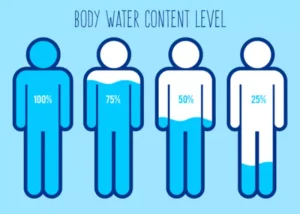
Observational studies can still yield useful information, but they also require researchers to gather data about when and how the alcohol is consumed, since alcohol’s effect on health depends heavily on drinking patterns. Moderate drinking is defined as at most one standard drink per day for women and at most two for men, while heavy drinking is defined as more than three drinks per day for women and four for men (80). A 2017 meta-analysis found an association between moderate alcohol consumption — 12.5 grams or less per day — and a reduced risk of dementia.
Study says no amount of alcohol is safe, but expert not convinced
However, studies investigating the link between alcohol and weight have provided inconsistent results (31). By reducing self-consciousness and shyness, alcohol may encourage people to act without inhibition. At the same time, it impairs judgment and may promote behavior people may end up regretting (1, 2). A 2017 study found that people who had a dependence on alcohol had a higher prevalence of dental issues — such as dental caries and periodontitis — than those who did not have a dependence on alcohol. While the 2020 review suggests that consuming small amounts of alcohol may carry some benefit, consuming large amounts, even occasionally, remains detrimental.
- Free standard shipping is valid on orders of $45 or more (after promotions and discounts are applied, regular shipping rates do not qualify as part of the $45 or more) shipped to US addresses only.
- More research is necessary to explore any further associations across bigger samples and longer time periods.
- But heavy drinking carries a much higher risk even for those without other health concerns.
- Excessive alcohol use can harm people who drink and those around them.
Risks of heavy alcohol use
- In worst-case scenarios, severe alcohol-induced brain damage may impair people’s ability to lead an independent life.
- The first of these to appear is fatty liver, characterized by increased fat inside liver cells.
- Observational trials suggest that alcohol consumption also raises the risk of specific subtypes of breast cancer that respond to these hormones.
- Our mission is to provide convenient access to licensed therapists who can help those in need live a happier and healthier life.
- The dopamine (DA) system in the CNS includes the nigrostriatal pathway, the mesolimbic pathway and the tuberoinfundibular pathway.
- Alcohol can also affect other parts of the body in both the short and the long term.
Together, that evidence is highly persuasive that alcohol increases the chances of breast cancer. In the past, moderate drinking was thought to be linked with a lower risk of dying from heart disease and possibly diabetes. After more analysis of the research, that doesn’t seem to be the case. In general, a healthy diet and physical activity have much greater health benefits than alcohol and have been more extensively studied. In fact, your overall diabetes risk tends to drop with moderate alcohol consumption.
Alcohol’s health effects: What you need to know
Alopecia areata is a type of hair loss that occurs when the immune system attacks the hair follicles. The Centers for Disease Control and Prevention (CDC) classifies this as drinking five or more drinks on one occasion for men and drinking four or more drinks on one occasion for women. Fermented alcoholic beverages, such as beer and wine, contain polyphenols such as resveratrol. The guidelines do not recommend that individuals who currently do not drink start drinking for any reason.
- If you are on any medications, talk to your health care provider about how alcohol may affect them.
- There is also some evidence that genes influence how alcohol affects the cardiovascular system.
- While alcohol intoxication is only temporary, chronic alcohol abuse can impair brain function permanently.
- A 2017 meta-analysis found an association between moderate alcohol consumption — 12.5 grams or less per day — and a reduced risk of dementia.
Ways to reduce risks
Alcohol causes at least seven types of cancer, including the most common cancer types, such as bowel cancer and female breast cancer. Ethanol (alcohol) causes cancer through biological mechanisms as the compound https://ecosoberhouse.com/article/cocaine-addiction-treatment-and-rehab/ breaks down in the body, which means that any beverage containing alcohol, regardless of its price and quality, poses a risk of developing cancer. Binge drinking is drinking enough alcohol to raise one’s BAC to 0.08% or above. Women typically reach this level after about four drinks and men after about five drinks in two hours. Binge drinking—and heavy drinking—is a type of alcohol misuse (a spectrum of risky alcohol-related behaviors).
Factors affecting alcohol consumption and alcohol-related harm
“We need to dispel the myths that SUDs are due to poor moral character, and that sheer willpower is all that is needed to change behavior,” says Aimee Peters of Ria Health. If you drink every day, or almost every day, you might notice that you catch colds, flu or other illnesses more frequently than people who don’t drink. That’s because alcohol can weaken your immune system, slow healing and make your body more susceptible to infection. But there’s plenty of research to back up the notion that alcohol does lead to weight gain in general. In reality, there’s no evidence that drinking beer (or your alcoholic beverages of choice) actually contributes to belly fat.

Whether or not to drink alcohol, especially for “medicinal purposes,” requires careful balancing of these benefits and risks. On the other hand, alcohol abuse and alcohol addiction are linked to severe negative effects on both physical and mental health. Keep in mind that your cancer risk may increase — regardless of how much you are drinking.
What Does Alcohol Do to Your Body? 9 Ways Alcohol Affects Your Health

Until gold-standard experiments are performed, we won’t truly know. In the meantime, we must acknowledge the complexity of existing evidence—and take care not to reduce it to a single, misleading conclusion. One way to improve our collective understanding of the issue is to look at both observational and experimental data together whenever possible. When the data from both types of studies point in the same direction, we can have more confidence in the conclusion. For example, randomized controlled trials show that alcohol consumption raises levels of sex steroid hormones in the blood. Observational trials suggest that alcohol consumption also raises the risk of specific subtypes of breast cancer that respond to these hormones.
I want to get healthier

Other lines of research related to alcohol withdrawal reinforce this model of alcohol-related changes in DA. Although it’s common knowledge that drinking too much is unhealthy, research sometimes conflicts about where is alcohol good for you the dividing line is between permissible and risky alcohol consumption — and whether drinking a small amount could come with any health benefits. He told Time in an August 24, 2018 article that while there is “no question” that heavy drinking is harmful, there are plenty of data supporting the benefits of moderate drinking.